IHV Scientific Advisory Board
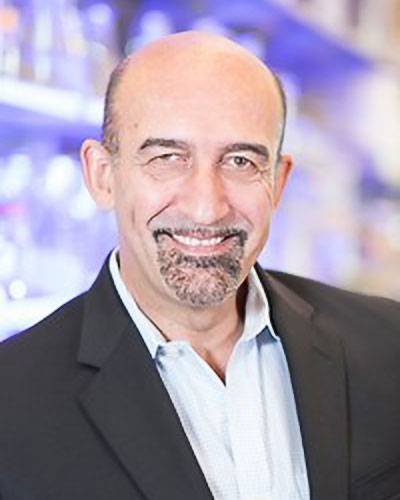
Mario Stevenson, PhD, Chair
University of Miami Miller School of Medicine
Dr. Stevenson is Professor of Medicine and Chief of the Division of Infectious Diseases at the Miller School of Medicine at the University of Miami. Dr. Stevenson came to the Miller School of Medicine from the University of Massachusetts. There, he spent twelve years as Director of the University of Massachusetts’ Center for AIDS Research (CFAR). This experience proved invaluable as Dr. Stevenson now co-directs the Center for AIDS Research (CFAR) at the University of Miami.
In addition to his academic responsibilities, Dr. Stevenson finds time to contribute to many scientific societies and research boards. Most notably, he is a member of the Board of Trustees of the American Foundation for AIDS Research (amfAR). He previously served as Chair of amfAR’s Scientific Advisory Board for over thirteen years. In 2000, he received a Merit Award from the National Institutes of Health for his research efforts. Dr. Stevenson was also awarded the position of Elected Fellow in 2003 and 2004 for the American Academy of Microbiology and the American Association for the Advancement of Science, respectively. Dr. Stevenson’s research focuses on mechanisms of viral persistence as well as host factors that shape the interplay between the virus and host.
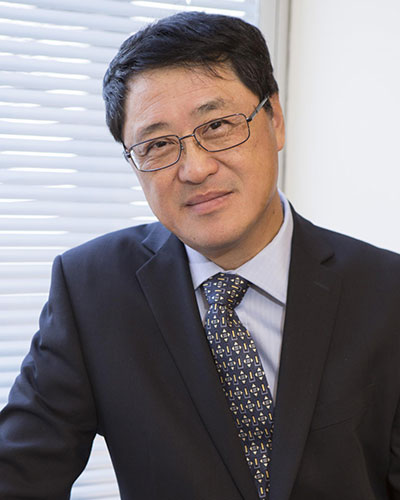
Lieping Chen, MD, PhD
Yale University School of Medicine
Dr. Chen studies membrane proteins that control lymphocyte function and translates his laboratory findings to treat human disease. Dr. Chen performed the first proof-of-concept study in 1992 showing the B7-CD28 family molecules serve as targets for cancer immunotherapy by introducing B7-1 into tumor cells to enhance therapeutic immunity. This study inspired subsequent studies targeting the B7-CD28/CTLA-4 family molecules to treat cancer. Dr. Chen discovered B7-H1 (PD-L1) in 1999 and demonstrated PD-L1's role in immune evasion in the tumor microenvironment. He singularly established the PD-1/PD-L1 pathway as a target for cancer immunotherapy in 1999-2002. He also initiated and organized the first-in-man anti-PD-1 clinical trial to treat human cancer in 2006 and developed PD-L1 staining as a biomarker to predict treatment outcomes. His discoveries directly led to the development of anti-PD-1/PD-L1 antibody therapy against a broad spectrum of human cancers (first approved 2014, with five anti-PD-1/PD-L1 antibodies being FDA-approved since). Dr. Chen’s discoveries have revolutionized current oncology practices, treatments, and outcomes.
Dr. Chen’s laboratory has discovered numerous molecular pathways with immune modulatory functions, including 4-1BB (CD137), ICOS/B7-H2, B7-H3, B7-H4, B7-H5/CD28H, PD-1H (VISTA), LIGHT/HVEM, TROY, B7-H2/CD28/CTLA-4 (human), SALM5/HVEM. These discoveries have led to the development of therapeutic agents in various stages of clinical trials, treating various types of human cancer and autoimmune disease.
He has published over 350 research articles, reviews, and book chapters. His discovery work on the PD-1/PD-L1 pathway was cited as the #1 breakthrough of the year by Science magazine in 2013. He has received several professional recognitions, including the William B. Coley Award (2014), AAI-Steinman Award (2016), Shizhang Bei International Award (2017), Warren Alpert Foundation Prize (2017), Luminary Award (2018) and Giants of Cancer Care (2018).
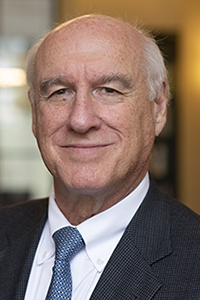
Myron Cohen, MD
University of North Carolina at Chapel Hill
Dr. Cohen received his BS degree, Magna Cum Laude, from the University of Illinois, Champaign-Urbana in 1971. He received an MD degree from Rush Medical College, Chicago, Illinois. He completed training in internal medicine at the University of Michigan, and training in infectious diseases at Yale University. After working in 1979 in the Peoples Republic of China on hemorrhagic Ffever with nephrosonephritis, Dr. Cohen joined the faculty of the University of North Carolina in 1980. He rose to the rank of Professor over ten years and served as the Director of the Division of Infectious Diseases from 1991 until 2019. He founded the UNC Institute for Global health and Infectious Diseases in 2007. Dr. Cohen has served as Co-PI of the NIH HIV Prevention Trials Network, since 2012 and as one of the founders and leaders of the NIH COVID Prevention Network in 2020. Dr. Cohen is the Yeargan-Bate Eminent Professor of Medicine, Microbiology and Immunology, and Epidemiology at the University of North Carolina at Chapel Hill.
For three decades, Dr. Cohen’s research has focused on the transmission and prevention of transmission of viral pathogens. Since onset of the COVID-19 pandemic, Dr. Cohen has worked on vaccines and monoclonal antibodies for prevention of COVID-19 as a leader of the NIH COVID-19 Prevention Network. He is the author of more than six hundred publications and one book.
Dr. Cohen is a Fellow of the American Society for Microbiology, the American College of Physicians, and the Infectious Disease Society of America. He is a member of the National Academy of Medicine, the American Society for Clinical Investigation, and the American Association of Physicians.
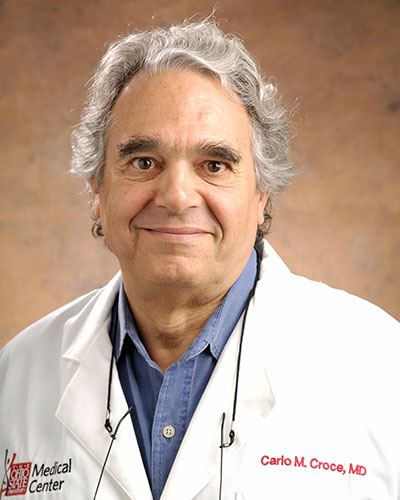
Carlo M. Croce, MD
The Ohio State University
Dr. Croce is Distinguished University Professor and The John W. Wolfe Chair in Human Cancer Genetics of the Department of Cancer Biology and Genetics, Director of the Human Cancer Genetics Program, and Director of the Institute of Genetics at The Ohio State University Comprehensive Cancer Center. His research has revealed the variety of mutated genes involved in leukemias, lymphomas, and other cancers. During the course of his career, he discovered the juxtaposition of the human immunoglobulin genes to the MYC oncogene, the deregulation of MYC in Burkitt lymphoma, the ALL1/MLL gene involved in acute leukemias, the TCL1 gene associated with T-cell leukemias, and cloned, named, and characterized the BCL2 gene involved in follicular lymphoma. In 2002 he discovered the role of microRNA in the pathogenesis of human cancer and then demonstrated that microRNA dysregulation contributes to the pathogenesis of all tumors. His discoveries have led to revolutionary innovations in the development of novel and successful approaches to cancer prevention, diagnosis, monitoring, and treatment, based on gene-target discovery, verification, and rational drug development.
Dr. Croce is a member of the National Academy of Sciences, Institute of Medicine (National Academy of Medicine), American Academy of Arts and Sciences, an AAAS Fellow, and Fellow of the AACR Academy. His awards and honors include: Outstanding Investigator Award, The National Institutes of Health; General Motors Cancer Research Foundation – Charles S. Mott Prize; Robert J. and Claire Pasarow Foundation Cancer Award; AACR-Pezkoller International Award for Cancer Research; G.H.A. Clowes Memorial Award; Albert Szent-Györgyi Prize for Progress in Cancer Research; Health Prize of the Fund InBev-Baillet Latour, Leuven, Belgium; Dan David Prize, Dan David Foundation at Tel Aviv University, shared with Prof. Mary-Claire King and Prof. Bert Vogelstein. He is principal investigator on several federal research grants, has more than 1100 peer-reviewed, published research papers and an H index of 214.
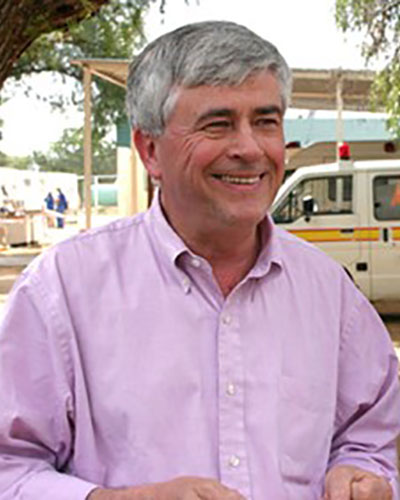
Max Essex, DVM, PhD
Harvard University T.H. Chan School of Public Health
Dr. Myron (Max) Essex is Chair of the Harvard AIDS Initiative (HAI), the Lasker Professor of Health Sciences at Harvard University, and Chair of the Botswana–Harvard AIDS Institute (BHP). He received his DVM degree at Michigan State University, his PhD at the University of California Davis, and was a postdoctoral fellow in the Department of Tumor Biology at the Karolinska Institute School of Medicine in Stockholm. Essex has published over 580 research papers; more than 40 have been in the journals Science and Nature. He has edited 10 books, including AIDS in Africa and Emerging Infections in Asia. His most recent book is Saturday Is for Funerals, published in 2010 and coauthored with AIDS activist and former Botswana Supreme Court Justice, Unity Dow.
He has trained 27 doctoral research students and 60 postdoctoral fellows. Essex has received 9 honorary degrees. He is an elected member of the Institute of Medicine of the National Academy of Sciences and a Fellow of the American Academy of Microbiology. In 2007, the Harvard School of Public Health established the Essex Fellowship for Students from Africa in his honor. In November 2011 Essex received the IHV Lifetime Achievement Award for Scientific Contributions.

Warner C. Greene, MD, PhD
Gladstone Institute of Virology and Immunology
Dr. Greene is the Director and Nick and Sue Hellmann Distinguished Professor of Translational Medicine at the Gladstone Institute of Virology and Immunology (GIVI). He is also a Professor of Medicine, Microbiology and Immunology at the University of California, San Francisco (UCSF). The ongoing research in Dr. Greene’s laboratory focuses on the molecular mechanisms underlying the pathogenic effects of HIV infection, with special emphasis on the function of the HIV nef, vif, and vpr gene products.
He is the author of more than 330 scientific papers and has been recognized as one of the 100 Most Cited Scientists in the world. After serving as a Senior Investigator at the National Cancer Institute and a Professor of Medicine and Howard Hughes Investigator at Duke University Medical Center, Dr. Greene accepted his current position as GIVI's Founding Director in 1991. Dr. Greene is a member of the Institute of Medicine of the National Academies, a Fellow of the American Academy for the Advancement of Science, and in 2012 was inducted as President of the American Association of Physicians.
He also serves as Co-Director of the UCSF-GIVI Center for AIDS Research. In 2007, Dr. Greene was appointed President of the Accordia Global Health Foundation, whose mission is to overcome the burden of infectious diseases by building healthcare capacity and strengthening academic medical institutions in Africa. Among his numerous honors, Dr. Greene won the 2012 Distinguished Research Career Award from the Ohio State University Center for Retrovirus Research and the 2012 Alumni Achievement Award from The Washington University School of Medicine in St. Louis.
In 2012, Dr. Greene joined with other global AIDS experts to release a locally affordable version of the world's leading AIDS medical textbook, Sande's HIV/AIDS Medicine: Global Care. Dr. Greene earned a bachelor's degree at Stanford University and an MD/PhD at Washington University School of Medicine. He took his internship and residency training in Medicine at the Massachusetts General Hospital at Harvard.
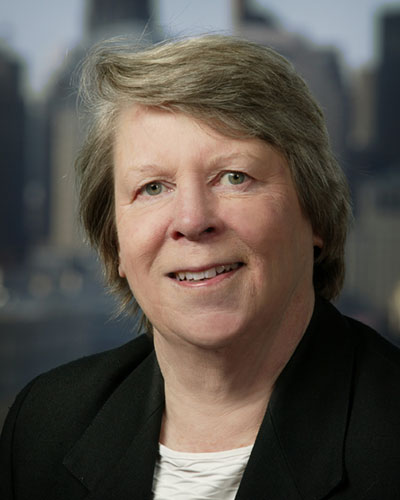
Diane E. Griffin, MD, PhD
Johns Hopkins University Bloomberg School of Public Health
Dr. Griffin is University Distinguished Service Professor and former chair of Molecular Microbiology and Immunology at the Johns Hopkins University Bloomberg School of Public Health and Vice President of the U.S. National Academy of Sciences. She earned her MD and PhD from Stanford University School of Medicine. Her research interests are in the area of pathogenesis of viral diseases with a focus on measles and alphavirus encephalitis. These studies address issues related to virulence and the role of immune responses in protection from infection and in clearance of infection and has included evaluation of licensed and experimental vaccines for measles. She is past president of the American Society for Virology and the American Society for Microbiology. Currently, she is U.S. Chair of the US-Japan Cooperative Medical Sciences Program and Director of the Johns Hopkins Global Virus Network Center of Excellence.

Mark H. Kaplan, MD
University of Michigan Health System
Dr. Kaplan, formerly the Jane and Dayton T. Brown Professor at New York University School of Medicine, was at North Shore University Hospital for 25 years as Chief of Infectious Diseases, founding and serving as Director of the Center for AIDS Research and Treatment. Currently, he is Professor of Clinical Medicine at the University of Michigan Health System Department Of Medicine, Infectious Diseases Division, where he conducts research on AIDS lymphoma, Human Endogenous Retrovirus activation in HIV and ELF-3 in breast cancer. He has published 144 peer-reviewed papers in infectious diseases, along with several books and book chapters on pathogenesis, diagnosis, and treatment of infectious diseases. For years he has been named one of the "Best Doctors" in New York, in the Northeast and in America.

Michel Klein, MD
BravoVax Co., Inc.
Dr. Klein is Chairman of the Scientific Advisory Board of BravoVax Co., Inc., a new vaccine biotechnology company registered in Wuhan, China. His experience includes Vice President Biotechnology Research – Pasteur Mérieux Connaught, Canada; Professor of Immunology – University of Toronto; Corporate Vice President, Science and Technology – Aventis Pasteur Group (Now Sanofi Pasteur), Chief Executive Officer, CANVAC (Canadian Network for Vaccines and Immunotherapeutics), and Chief Strategy Officer, BravoVax.
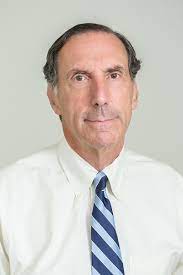
Henry Masur, MD
Clinical Center, NIH
Dr. Masur has been the Chief of Critical Care Medicine at the National Institutes of Health since 1989, focusing on building a multidisciplinary department with a strong emphasis in infection prevention and management. He is a leader in infectious diseases, serving as President of Infectious Disease Society and as Associate Editor of Critical Care Medicine.
In 2007, he started the District of Columbia Partnership for AIDS Progress (DC PFAP) with Dr. Carl Dieffenbach and Dr. Anthony Fauci, as program that is transforming Washington’s ability to reduce the impact of HIV on this city. The program is now focusing on another important HIV morbidity, opioid use disorder. The program has received over $20 million in funding commitments from NIH Office of AIDS Research and the NIH HEAL initiative (Helping End Addiction Long Term).
He is also the Co-Chair of the NIH COVID-19 Guideline Panel with Dr. Clifford Lane and Dr. Roy Gulick. Dr. Masur received the 2018 IHV Lifetime Achievement Award for Excellence in Medical Education, Clinical Care, and Clinical Research.
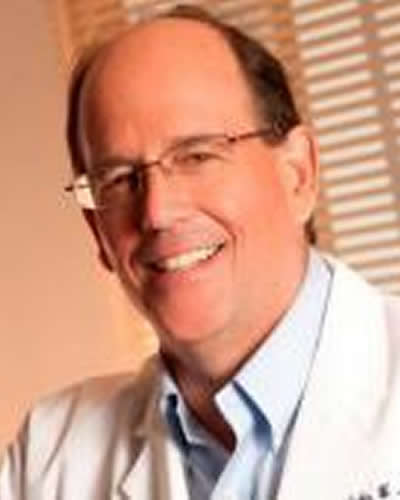
John W. Mellors, MD
University of Pittsburgh
Dr. Mellors is a tenured Professor of Medicine, Chief of Infectious Diseases, and the Endowed Chair for Global Elimination of HIV and AIDS at the University of Pittsburgh School of Medicine. He is also the Executive Director of the HIV Program at the University of Pittsburgh Medical Center (UPMC), which provides comprehensive primary care and access to clinical trials for HIVinfected individuals. Dr. Mellors' research focuses on the mechanisms of HIV drug resistance, on the use of antiretrovirals to prevent HIV-1 infection, and on persistent reservoirs of HIV-1 resistance to nucleoside reverse transcriptase inhibitors and non-nucleoside reverse transcriptase inhibitors, the role of low frequency drug-resistant HIV-1 variants in failure of antiretroviral therapy, and the source of persistent viremia in patients on "successful" antiretroviral therapy. His clinical research efforts helped establish the relationship between viremia and clinical outcome in HIV-1 infection and between drug resistance and treatment response in antiretroviral-experienced patients. Dr. Mellors directs the virology cores for the AIDS Clinical Trials Group and the Microbiocide Trials Network. He is an elected member of the Association of American Professors.

Douglas Nixon, MD, PhD
Weill Cornell Medicine
Dr. Nixon is Professor of Immunology in Medicine at Weill Cornell Medicine, the medical school of Cornell University. Nixon has actively pursued immunovirology research for more than 30 years, with his studies spanning from clinical research and human immunology to basic virology and molecular biology.
Over the past three decades, he has focused on the cellular immune response to retrovirus infections and has published extensively on these topics. Most recently, Nixon was the Ross Professor of Basic Science Research and Chair of the Department of Microbiology, Immunology, and Tropical Medicine (MITM) at the GW School of Medicine and Health Sciences, and prior to that, a Professor of Medicine at the University of California, San Francisco, and Associate Chief of the Division of Experimental Medicine, where he served as the primary mentor for numerous postdoctoral fellows, students, and several National Institutes of Health (NIH) Individual Career Development (K) awardees. He has also held positions at the Gladstone Institute of Virology and Immunology, The Rockefeller University, the Aaron Diamond AIDS Research Center, and the University of Oxford.|
He has published more than 250 articles in peer-reviewed journals, and he holds several patents. Dr. Nixon’s research is funded through grants from the NIH, including an NIH Merit Award, AmfAR, and the Gates Foundation. He is the past chair of the NIH AIDS Vaccine Subcommittee, was elected as a scientist of the Elizabeth Glaser Pediatric AIDS Foundation, is a member of the American Society for Clinical Investigation and the Henry Kunkel Society, and delivered the Distinguished Science Lecture in 2009 at the NIH Rocky Mountain Laboratories. He is the PI of the Martin Delaney Collaboratory, Believe.
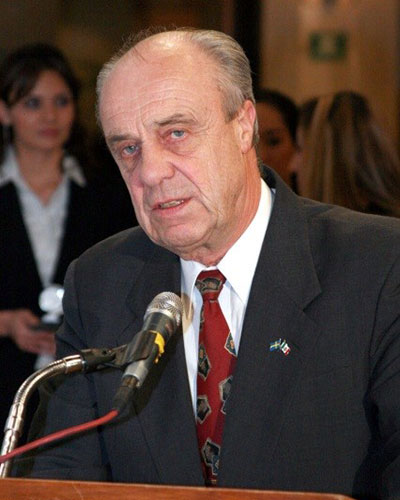
Erling C. J. Norrby, MD, PhD
Center for History of Science, The Royal Swedish Academy of Sciences
Dr. Norrby is from the Karolinska Institute in the School of Medicine, Stockholm. He is a world authority on viruses and was Professor and Chairman at the Institute for 25 years. During this time he was President of the Division of Virology representing all the virologists of the world for three years. He has also served as the Dean of the Medical Faculty for six years and has been heavily involved in various ways for more than 20 years in the selection of the recipients of Nobel Prizes in Physiology or Medicine. He then left to become the Permanent Secretary of the Royal Swedish Academy of Sciences for six years.
During this time he had overriding responsibility for the Nobel Prizes in Physics and in Chemistry and was a member of the Board of the Nobel Foundation. He is the author of four books on Nobel Prizes, primarily in physiology or medicine but also in chemistry. He has lectured around the world on many topics related to the Nobel Prizes. Currently, he is the Vice-Chairman of the Board of the J. Craig Venter Institute. He also has one of the leading functions at the Royal Swedish court as Lord Chamberlain in Waiting.
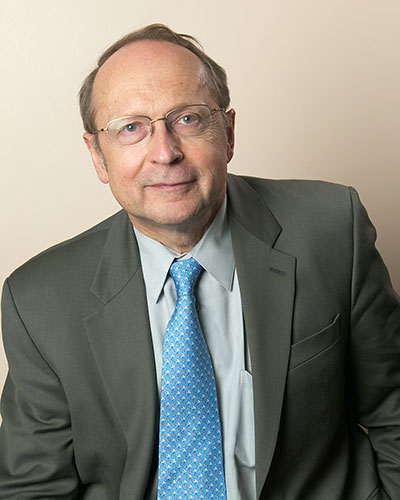
Peter Palese, PhD
Icahn School of Medicine at Mount Sinai
Dr. Palese is Professor and Chair of the Department of Microbiology at the Icahn School of Medicine in New York. His research includes work on the replication of RNA-containing viruses with a special emphasis on influenza viruses, which are negative-strand RNA viruses. Specifically, he established the first genetic maps for influenza A, B and C viruses, identified the function of several viral genes, and defined the mechanism of neuraminidase inhibitors (which are now FDA-approved antivirals).
Dr. Palese also pioneered the field of reverse genetics for negative strand RNA viruses, which allows the introduction of site-specific mutations into the genomes of these viruses. This technique is crucial for the study of the structure/function relationships of viral genes, for investigation of viral pathogenicity, and for development and manufacture of novel vaccines. In addition, an improvement of the technique has been effectively used by him and his colleagues to reconstruct and study the pathogenicity of the highly virulent but extinct 1918 pandemic influenza virus. His recent work in collaboration with Dr. Garcia-Sastre has revealed that most negative strand RNA viruses possess proteins with interferon antagonist activity, enabling them to counteract the antiviral response of the infected host. Dr. Palese and colleagues are now aiming at developing a Universal Influenza Virus Vaccine, which is long-lasting and effective against all strains of influenza.
Dr. Palese is a member of the National Academy of Sciences, the National Academy of Medicine, and the American Academy of Arts and Sciences.
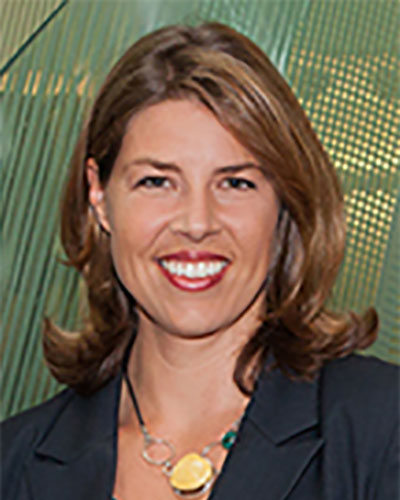
Erica Ollmann Saphire, PhD
La Jolla Institute for Immunology
Dr. Ollmann Saphire's laboratory explores, at the molecular level, how pathogens evade and usurp innate and adaptive immune responses and how we can design vaccines and antivirals to defend against them. She incorporates x-ray crystallography, virology, and immunology in her analysis of the key proteins responsible for the pathogenesis of and immune suppression in Lassa, LCMV, Marburg, and Ebola Hemorrhagic Fevers. Dr. Ollmann Saphire's awards include a Presidential Early Career Award in Science and Engineering (PECASE) presented by The White House Office of Science and Technology Policy and NIH/NIAID in 2009, the Burroughs Wellcome Career Award in Biomedical Sciences, the American Society of Microbiology’s ICAAC Young Investigator Award, the Ellison Medical Foundation’s New Initiatives Award in Global Infectious Disease, and the Pittsburg Diffraction Society’s Surhain Sidhu Award.

Jeffrey Schlom, PhD
National Cancer Institute, NIH
Dr. Schlom is Chief of the Laboratory of Tumor Immunology and Biology, Center for Cancer Research at the National Cancer Institute, National Institutes of Health. He directs a translational research program focusing on the design and development of new cancer immunotherapies and immunotherapeutic strategies. The program takes advantage of the latest advances in genomics and immunology through hypothesis-generating preclinical research and translates these findings into paradigm-shifting science-based clinical trials.
Novel immunotherapies designed or developed in this program include therapeutic cancer vaccines, checkpoint inhibitors, immune modulators, and agents to inhibit immunosuppressive entities. Emphasis is placed on the development of "off the shelf" therapeutics that can be widely distributed and evaluated at multiple cancer research centers.
Dr. Schlom’s program has also developed a spectrum of immune assays that interrogates numerous components of the immune system, to help identify which patients will most likely benefit from immunotherapy either before treatment is initiated or early in the therapeutic regimen. Dr. Schlom serves on the editorial boards of numerous scientific journals, and has received numerous awards. He holds a wide range of patents in the area of immunotherapy and has authored more than 700 scientific publications.
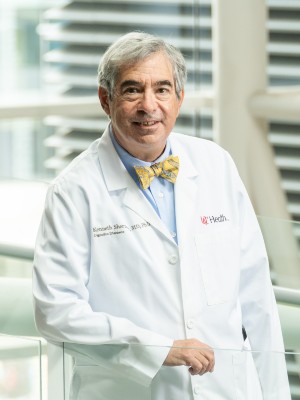
Kenneth Sherman, MD, PhD
University of Cincinnati College of Medicine
Dr. Sherman received his BS and PhD in Microbiology from Rutgers University and his MD from George Washington University. He is a University of Cincinnati Distinguished Research Professor, and holds an endowed chair as the Robert & Helen Gould Professor of Medicine. Dr. Sherman has served as the Director/Chief of the Division of Digestive Diseases at the University of Cincinnati College of Medicine since 2003.
Dr. Sherman’s research interests center around viral hepatitis, and the immunopathogenesis, evaluation, and treatment of liver disease in those living with HIV infection. Dr. Sherman is the author of over 300 peer-reviewed articles, abstracts, and book chapters.
He has held numerous leadership positions including service as the Chair of the American Gastroenterological Association’s Liver and Biliary Section and is a former member and acting Chair of the FDA Antiviral Advisory Committee. He has previously led the NIAID/ACTG Hepatitis Transformative Research Group. He has formally mentored over 50 students, trainees, and junior faculty.
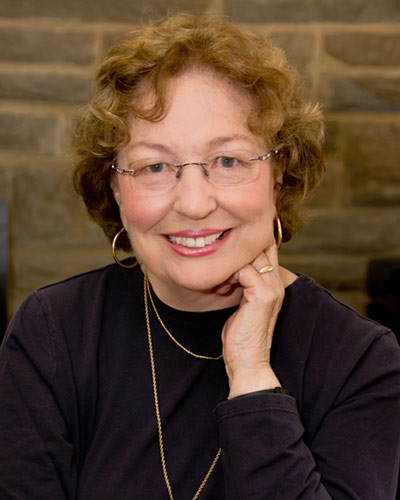
Anna Marie (Ann) Skalka, PhD
Fox Chase Cancer Center, Temple Health
Dr. Skalka is Professor Emerita and former W.W. Smith Chair in Cancer Research at the Institute for Cancer Research at the Fox Chase Cancer Center in Philadelphia, where she served as Sr. Vice President for Basic Science from 1987 until 2008. She received a PhD degree in Microbiology from New York University Medical School. Dr. Skalka is internationally recognized for her contributions to our understanding of viral oncogenesis and for the biochemical mechanisms by which retroviruses (including the AIDS virus) replicate and insert their genetic material into the host genome. Work from her laboratory provided fundamental groundwork for development of antiviral drugs to treat AIDS.
Dr. Skalka has published more than 240 scientific papers and scholarly reviews, has edited several scientific books, and organized and spoken at numerous national and international meetings and conferences. She is also author of Discovering Retroviruses: Beacons in the Biosphere, a history-focused book for the science-interested public published in 2018 by Harvard University Press, and is coauthor of the widely acclaimed, two-volume textbook, Principles of Virology. In addition to service on numerous scientific advisory boards,
Dr. Skalka has been deeply involved in state, national, and international advisory groups concerned with the broader, societal implications of scientific research, including the NJ Commission on Cancer Research, which she chaired from 2008-2013. In recognition of her outstanding accomplishments, she has been honored by election to the American Academy of Arts and Sciences, the American Association for the Advancement of Science, the New York Academy of Science, and the American Academy of Microbiology, and by several prestigious awards including the 2018 Sigma Xi William Procter Prize for Scientific Achievement and Communication.
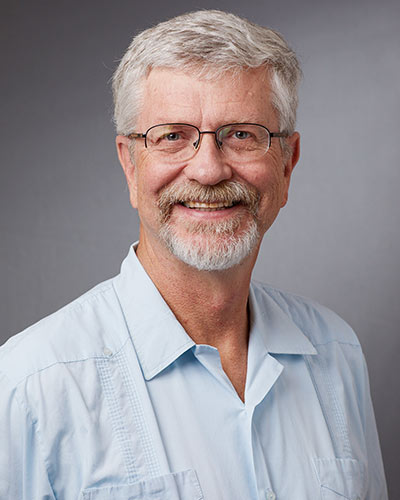
Sten H. Vermund, MD, PhD
Yale School of Public Health
Dr. Vermund serves as Dean of the Yale School of Public Health, Anna M.R. Lauder Professor of Public Health (Epidemiology of Microbial Diseases), and Professor of Pediatrics at the Yale School of Medicine. His work on HIV-HPV interactions among women in a methadone program in the Bronx stimulated a change in the 1993 CDC AIDS case surveillance definition to include cervical cancer and helped motivate the launch of cervical cancer screening programs within HIV/AIDS programs around the world. His research has focused on health care access in low-income nations, adolescent sexual and reproductive health, and prevention of mother-to-child HIV transmission. He is a member of the National Academy of Medicine and a Fellow of the American Association for the Advancement of Science.

